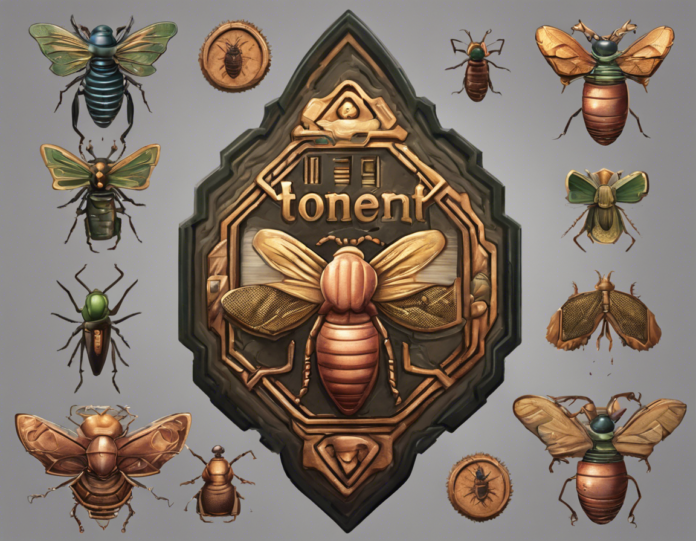Introduction
In the realm of pest control, one solution that has been gaining popularity is the use of token insecticides. These are chemical compounds specifically designed to target and eliminate insects that pose a threat to crops, homes, and public health. In this article, we will delve into the world of token insecticides, exploring their benefits, applications, and potential impact on the environment.
Understanding Token Insecticides
Token insecticides, also known as insecticidal compounds, are chemical substances formulated to control and eliminate insect populations that are harmful or detrimental to human activities. These substances work by disrupting the nervous system, development process, or reproductive abilities of insects, leading to their eventual demise.
Benefits of Using Token Insecticides
-
Efficiency: Token insecticides are known for their high efficiency in controlling insect populations. They can effectively target and eliminate specific insect species without harming non-target organisms.
-
Versatility: These insecticides come in various forms such as sprays, baits, and granules, making them versatile for different applications and settings.
-
Cost-Effectiveness: In the long run, the use of token insecticides can be more cost-effective compared to other methods of pest control.
-
Reduced Health Risks: By targeting specific insect species, token insecticides help reduce the risks associated with broad-spectrum insecticides, which can harm beneficial insects and pollinators.
-
Environmental Impact: Some token insecticides have a lower environmental impact compared to traditional insecticides, as they degrade more quickly and are less persistent in the environment.
Applications of Token Insecticides
Token insecticides find applications in various industries and settings, including agriculture, public health, and household pest control.
-
Agriculture: Farmers use token insecticides to protect their crops from damaging pests, thereby increasing yields and ensuring food security.
-
Public Health: Insecticides are used to control disease-carrying insects such as mosquitoes and flies, helping prevent the spread of vector-borne diseases.
-
Household Pest Control: Token insecticides are commonly used to control pests such as ants, cockroaches, and spiders in homes and residential areas.
Types of Token Insecticides
There are different types of token insecticides based on their mode of action and chemical composition:
-
Neurotoxin Insecticides: These target the nervous system of insects, disrupting their neurotransmission and eventually causing paralysis and death.
-
Insect Growth Regulators (IGRs): IGRs interfere with the development and reproductive processes of insects, leading to reduced populations over time.
-
Chitin Synthesis Inhibitors: These insecticides disrupt the production of chitin, a vital component of insect exoskeletons, resulting in molting and growth abnormalities.
-
Plant-Incorporated Protectants (PIPs): PIPs are genetically modified plants that produce insecticidal proteins, offering built-in protection against insect pests.
Frequently Asked Questions (FAQs)
- Are token insecticides safe for humans and pets?
-
Most token insecticides are safe for humans and pets when used according to label instructions. It is crucial to follow safety precautions and guidelines to minimize any potential risks.
-
Do token insecticides harm beneficial insects like bees and ladybugs?
-
While some insecticides may have minimal impact on beneficial insects, it is essential to choose products that are specifically designed to target harmful pests while preserving beneficial insect populations.
-
How long do token insecticides remain effective after application?
-
The effectiveness of token insecticides can vary depending on factors such as environmental conditions, application methods, and the target insect species. It is best to follow the recommended application intervals for optimal results.
-
Can insects develop resistance to token insecticides?
-
Like with any insecticide, prolonged and repetitive use of token insecticides can lead to the development of resistance in insect populations. To mitigate resistance, it is advisable to rotate between different chemical classes and integrate other pest control methods.
-
What is the difference between token insecticides and broad-spectrum insecticides?
- Token insecticides are designed to target specific insect species or groups, while broad-spectrum insecticides can affect a wide range of insect species, including beneficial ones. Token insecticides offer a more targeted approach to pest control, minimizing collateral damage to non-target organisms.
Conclusion
In conclusion, token insecticides are valuable tools in pest control, offering targeted and effective solutions for managing insect populations in various settings. By understanding their benefits, applications, and types, individuals and industries can make informed decisions when it comes to pest management. It is essential to prioritize safety, environmental impact, and sustainability when utilizing insecticidal compounds for pest control purposes.









